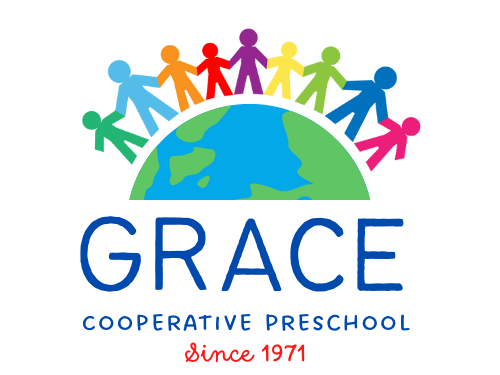Happy Earth Day!
Today is Earth Day. At Grace Preschool we take pride in teaching our students to be stewards of the environment. We compost our snack waste. […]
Five to Try This Week!
Grace Cooperative Preschool, April 20-24, 2020 Try making your own play dough! Combine 2 cups flour, 1 cup salt and 4 teaspoons cream of tartar […]
Five to Try This Week!
Grace Cooperative Preschool, April 13-17, 2020 Make a Memory- We are all missing our routines and the friends and activities that were a part of […]
The Importance of Play
All over the world today, school children are being encouraged to play. At Grace Cooperative Preschool, we don’t wait for Global School Play Day- we […]
Saturday School at Grace
One of the great things about our parent participation preschool is Saturday School. We are fortunate to have moms, dads, and grandparents who regularly co-op […]
Why accreditation is important
According to the National Association for the Education of Young Children, a high quality early childhood program provides a safe and nurturing environment while promoting […]
September in the 3’s and 4’s Classes
What could be more important to our preschoolers than the friends who share our space, our campus, and what’s around us? These are the things […]
